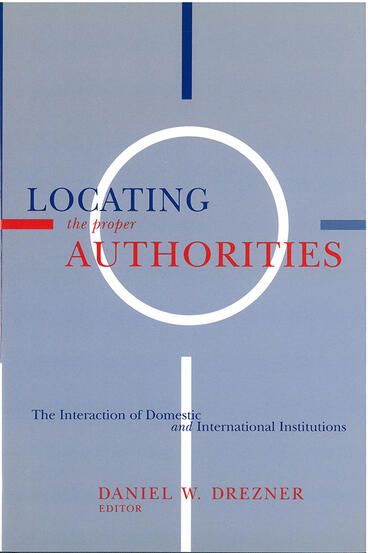Locating the Proper Authorities
The Interaction of Domestic and International Institutions
Examines how international organizations are used as a means of bypassing domestic opposition to policy change
Description
In an era of democratization and globalization, the number of decision makers has multiplied exponentially. Parliamentarians, bureaucrats, international secretariats, regional governors, and nongovernmental organizations have all gained influence at the expense of heads of state. How do these competing layers of authority bargain with each other to govern? International relations theorists have traditionally focused on how leaders' domestic constraints affect their bargaining position internationally. However, there has been much less work on the flip side of this question--how foreign policy leaders can use international institutions as a means of circumventing or co-opting domestic opposition. Locating the Proper Authorities offers some preliminary answers, drawn from a number of theoretical perspectives by the contributors to this volume.
Written by some of the most promising theorists in the field of international relations, the essays in Locating the Proper Authorities address a broad array of substantive issue areas, including humanitarian intervention, trade dispute settlement, economic development, democratic transition, and security cooperation. This broad case selection has the virtue of incorporating developing countries, which are too often ignored in international relations, as well as less well-known international organizations. Each chapter examines the mechanisms and strategies through which policy entrepreneurs use international organizations as a means of bypassing or overcoming opposition to policy change. By examining the effects of different institutional design features, Locating the Proper Authorities helps us understand the variety of influence mechanisms through which international institutions shape the interaction of policy initiators and ratifiers.
Daniel W. Drezner is Assistant Professor of Political Science, University of Chicago.
Daniel W. Drezner is Assistant Professor of Political Science at the University of Chicago.

